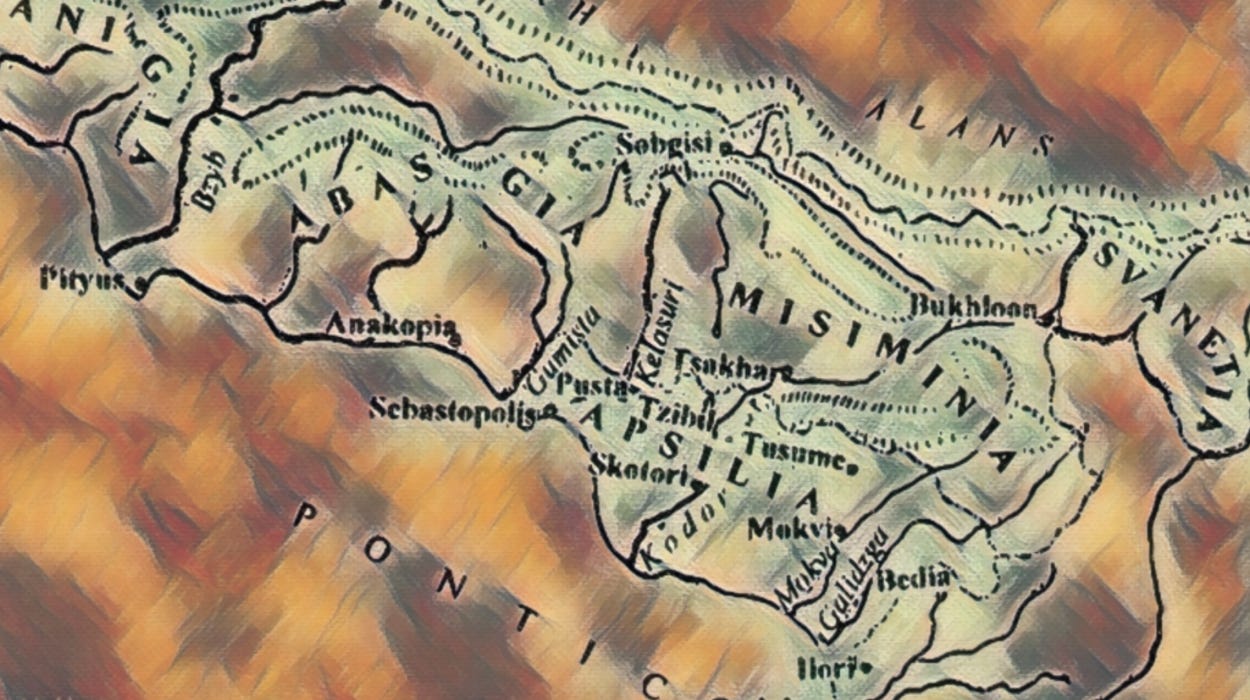Explore Our Latest Translations on AbkhazWorld
Explore newly translated works from scholars examining the history and politics of Abkhazia and the Georgian-Abkhazian conflict.
We are sharing three newly translated articles on AbkhazWorld. Whether you're looking to deepen your understanding of Abkhazia’s history or explore the broader context of the region, these translations offer a wealth of information and perspectives.
Bolshevik Order in Georgia: Social Status and Repressions: Abkhazians, Adjarians, Ossetians, by Marc Junge and Bernd Bonwetsch. This chapter, translated from the Russian version of the original German publication, delves into the Great Terror's impact on minority groups in Georgia, focusing on their social status and the repressions they faced under the Bolshevik regime.
From Mountain Republic to Georgian Occupation: Abkhazia’s Struggle for Statehood (1917–1918), by Stanislav Lakoba. Translated from Russian, this article explores the early years of Abkhazia’s fight for statehood amidst the Georgian occupation, offering a thorough historical analysis of the period between 1917 and 1918.
Study of Issues in the Ethnic History of the Abkhazians in the Context of the Georgian-Abkhazian Conflict, by Georgy Anchabadze (Achba). Originally published in Aspects of the Georgian-Abkhazian Conflict (1999), this article examines the ethnic history of Abkhazians, shedding light on how historical narratives have influenced modern inter-ethnic tensions.
These translations provide invaluable perspectives on the region’s turbulent history and the ongoing dialogue surrounding Georgian-Abkhazian relations.
Bolshevik order in Georgia: Social Status and Repressions: Abkhazians, Adjarians, Ossetians, by Marc Junge & Bernd Bonwetsch
Originally published in German as Bolschewistische Ordnung in Georgien: Der Große Terror in einer kleinen kaukasischen Republik by De Gruyter Oldenbourg in 2015, the book was later translated into Russian and Georgian. Authored by Marc Junge and Bernd Bonwetsch from Ruhr University Bochum, it was also published by the German Historical Institute in Moscow.
The chapter below, titled "Social Status and Repressions: Abkhazians, Adjarians, Ossetians", has been translated from the Russian version.
BOLSHEVIK ORDER IN GEORGIA
Published in Two Volumes
Volume 1
The Great Terror in a Small Caucasian Republic
Chapter 5 – pp. 245-267
Social Status and Repressions: Abkhazians, Adjarians, Ossetians
Study of Issues in the Ethnic History of the Abkhazians in the Context of the Georgian-Abkhazian Conflict, by Georgy Anchabadze
This article was first published in Aspects of the Georgian-Abkhazian Conflict, Volume II (August 1999, pp. 20-40) in Russian (University of California, Irvine), and is translated into English. Written by Georgy Anchabadze (Achba), it examines the ethnic history of the Abkhazians within the framework of the Georgian-Abkhazian conflict, highlighting the role of historical narratives in shaping inter-ethnic tensions.
Аспекты грузино-абхазского конфликта
Aspects of the Georgian-Abkhazian Conflict
Volume II – August 1999, pp. 20-40
UCI – University of California, Irvine (2000)
Editors:
Paula Garb
Arda Inal-Ipa
Paata Zakareishvili
Study of Issues in the Ethnic History of the Abkhazians in the Context of the Georgian-Abkhazian Conflict
From Mountain Republic to Georgian Occupation: Abkhazia’s Struggle for Statehood (1917–1918), by Stanislav Lakoba
In the book Ответ историкам из Тбилиси (документы и факты) (English: 'A Response to Historians from Tbilisi: Documents and Facts'), Abkhazian historian Stanislav Lakoba addresses key issues in Georgian-Abkhazian relations. Drawing from extensive research and historical documentation, Lakoba deeply explores the complexities of historical narratives and their impact on modern conflicts. The first response from this book was published on AbkhazWorld under the title Rewriting History? A Critique of Modern Georgian Historiography on Abkhazia (pp. 3–7). The second chapter was published as Challenging Georgian Narratives (Response 2): A Further Exploration on Abkhazia (pp. 7-18).
In this article, you will find the third response from the same book (pp. 18–28).






